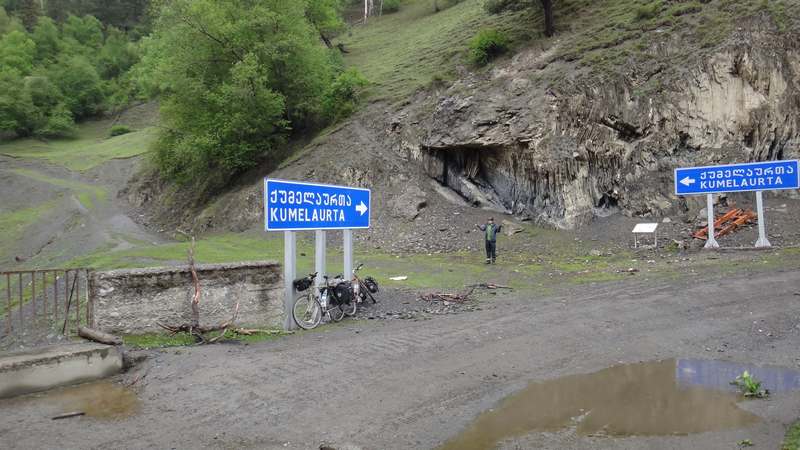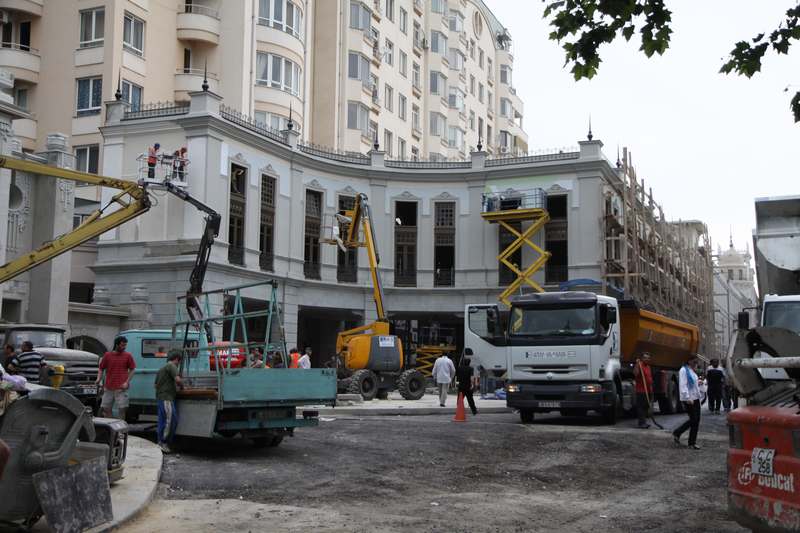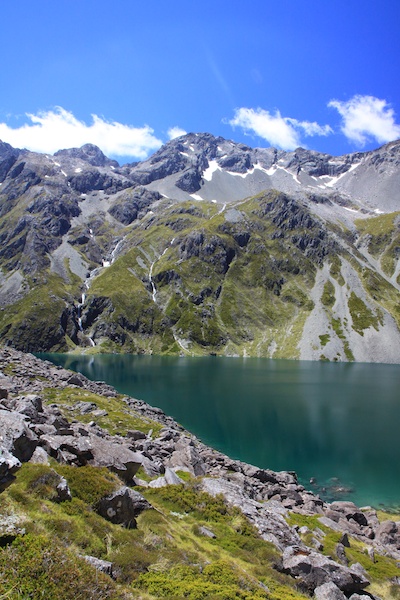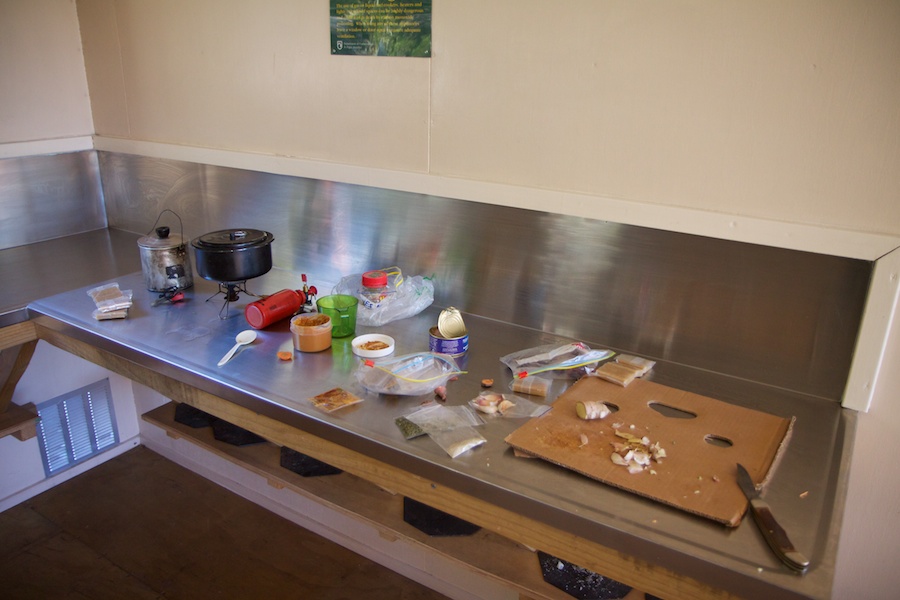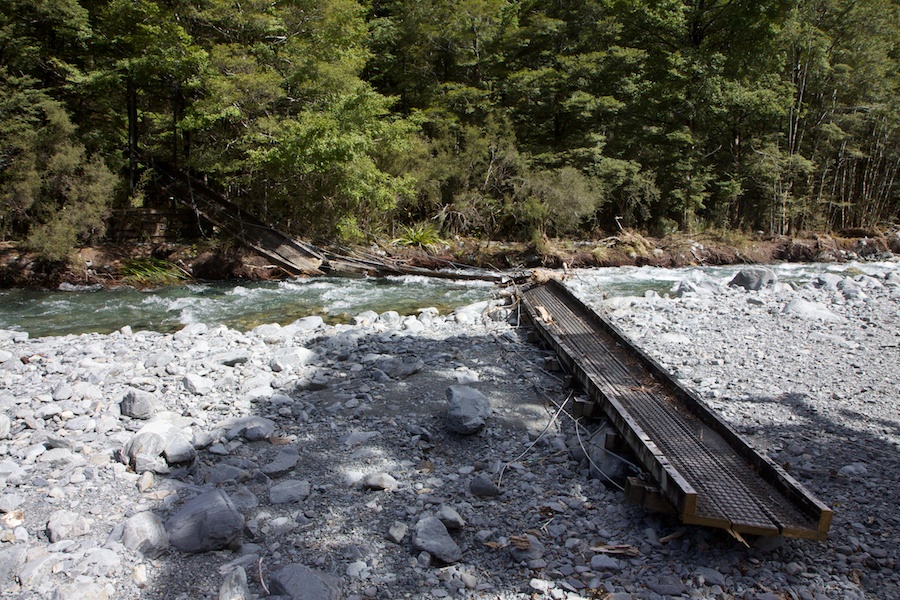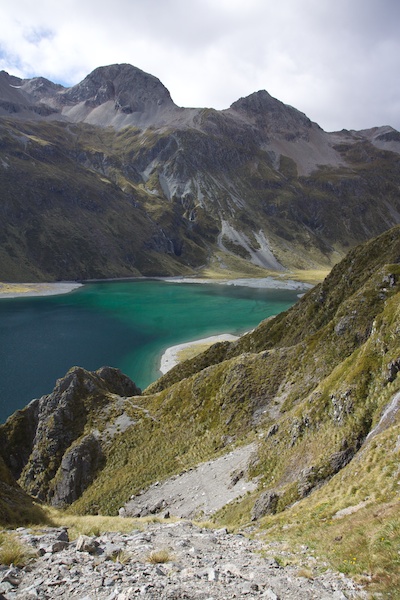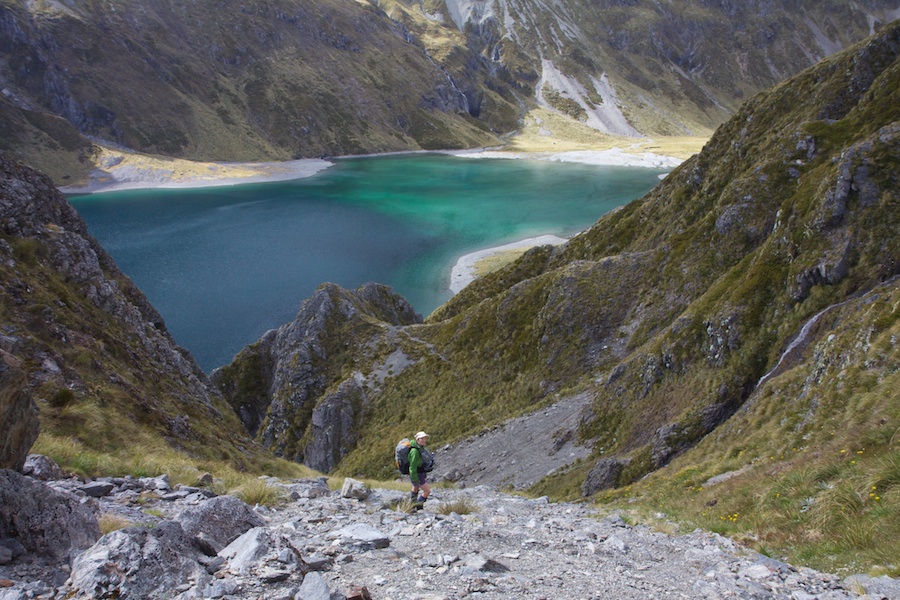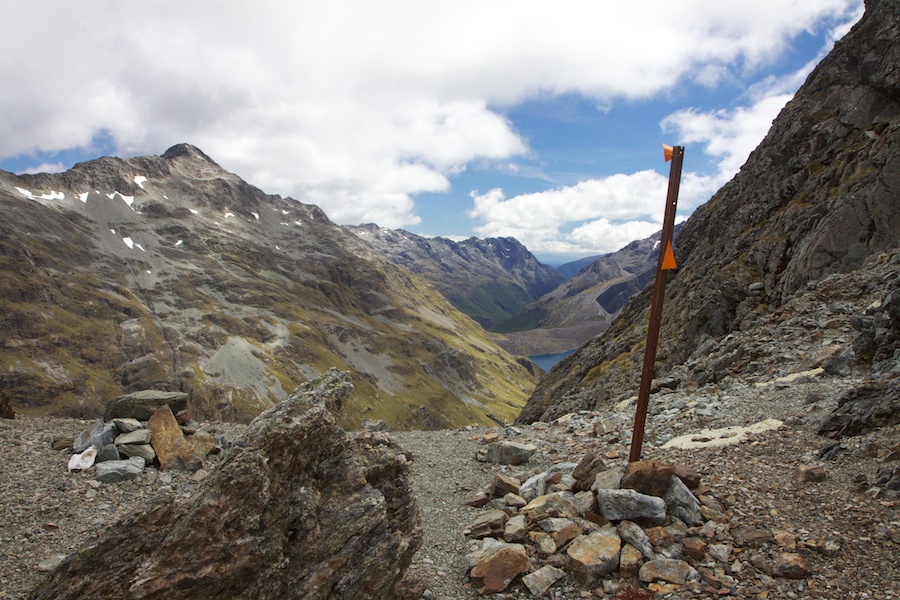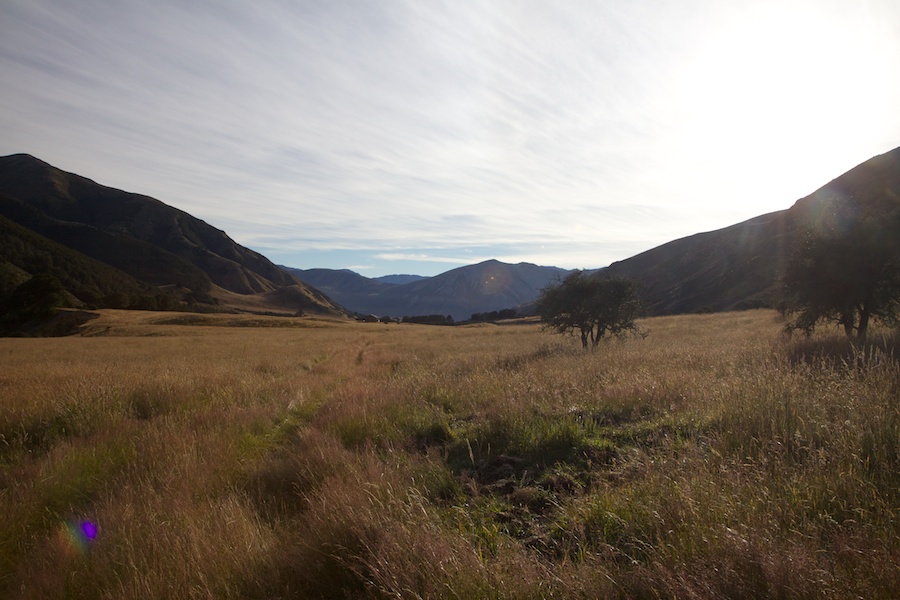"Hey, everything ok?" he asks. "Not really" I reply, I look at my watch, it shows 5 am exactly. My first reaction is to swear, a lot! I then look at my watch, 2.15 am. It's pitch black and there is water all around me, I'm floating on my Therm-a-rest. How is this possible? I open the tent door to see my shoes floating in 20 cm of water. By the time I've had time to stash my camera in my dry bag and throw on 2 extra thermals, the water has risen to 30 cm, I swear more. I jump out into the heavy rain, the wind bites into my wet body. This is serious! Katie emerges, I start quickly grabbing things and throwing them to higher ground on the tussock nearby, it's taking too long, the water is rising. I jump into the knee deep water, barefoot and boxer shorts only. I quickly pull each corner of the tent up, I look inside to see papers and books in the netting above, still dry somehow, I quickly stuff them down into my drybag before dragging the tent over to the side. With great trouble, I empty the tent, remove the poles and stuff it into my bag. My sleeping bag is soaking wet, and my hands begin to become stiff and slow. I find my rain pants and pull them onto my freezing legs followed by my soggy shoes. My head torch shine weakly into the black night. Our only option is escape, the only escape is a hut 1.5 hours back down the track, but no easy track. Just a few hours before, exhausted and facing extreme winds, our chosen campsite behind a huge rock seemed a wise choice. The dry riverbed nearby seemed like just that, a dry riverbed. Having cooked and eaten, we tucked down into the tent to avoid the biting wind and light rain. The wind gusts to gale force, but the tent holds. Finally, around midnight, the wind eases and I fall into a deep sleep after a long 10 hour walk that day. I'm loosing heat fast, most things are packed, well the important stuff anyway, it doesn't matter, we need to get out of here before exposure sets in. We track back towards the lake, crossing small rivers and large pools. Quickly we reach the shore and follow the coast to a stream, now a raging torrent. The small orange triangle on a stake indicates that this is the way up and over the cliffs that surround the lake shore. My light is loosing power, Katie takes the lead, her light shining deep into the total blackness. We climb the first scree slope, it falls away under our feet but we push on. I can feel myself cooling down, I try to keep moving and to keep my hands protected from the bitter wind. We get half way up and it feels like we've gone the wrong way, we turn back only to find a deep gorge which neither of us recognise from earlier in the day. We climb back up to realise we were on the right track from the start. We continue... I wait at the orange marker while Katie goes on ahead to find the next one, once found, she yells to me and I proceed to meet her and we continue. Finally we arrive at the last scree back down to the track, a great feeling of relief comes over us as a proper track start just ahead. The track is gone, the triangles or gone, there is only a steep cliff on the left and rolling hills on the right, nothing either of us recognise, we are lost, cold and tired. Panic is not an option. We stop and discuss, it must be over that hill, is it? maybe... crossing the hill we find a small lake. A bloody lake! There was no lake when we passed earlier... where are we? Which way is the big lake? Left, right? I don't know. Katie retrieves her compass and I easy my bag open with my frozen, almost useless hands. I pull out the map and look closely, to my surprise this tiny lake appears as a small dot on the map, incredible! I line up the map with north and take a bearing back to the track, east, we need to go east. After 5 mins walking over some huge boulders the track appears, what a relief. We continue quickly down the hill, over stones, through trees and across raging streams. Finally we arrive back on the flat, which drags on for what seems like forever. The hut finally appears and I already feel better, I take off my shoes and go inside, the people sleeping in the tent respond to my answer quickly and jump into action, giving us extra clothes, making a cup of tea and putting the fire on. We are given one of their sleeping bags and made comfortable as we slowly warm up. I'm happy to be alive. After a day drying out, we made a second attempt at the pass. After retrieving the last of the things we had lost of left behind at the campsite, we continued on and over the 1879 m Waiau pass into North Canterbury and continued on to the Lewis Pass via the St. James Walkway to complete the 120 km, 8 day epic adventure. Another one to remember, though perhaps just a little more adventurous than planned.

